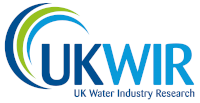BQ7 - How do we achieve zero customers in water poverty by 2030?
We are currently working on the approach to answering this Big Question, and more information will be given here soon.
Once we understand where the gaps are, we will produce a route map – this is a plan as to how we will answer our Big Question.
The route map will have a number of key elements. At the top will be our Big Question and then we will look to see what Outcomes we need from the research programme -if we can achieve all these outcomes we can answer the Big Question. This is the stage we are currently at for this Big Question.
The next stage will be to think about the key benefits we want the research projects to deliver to meet these outcomes.
Following this, we will plan the research projects to help deliver the benefits.
UKWIR – the UK and Irish water industry’s research body – has commissioned the first study of its kind in the UK to develop a robust approach to sampling and detection of microplastic particles in the treated water cycle. This included accurately measuring the presence of microplastic particles in potable (drinking) water, treated wastewater and in the solid residues (sludge) produced by both the water and wastewater treatment processes. Please click here to view more information.
